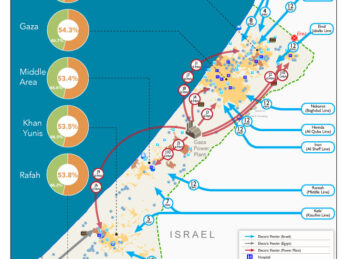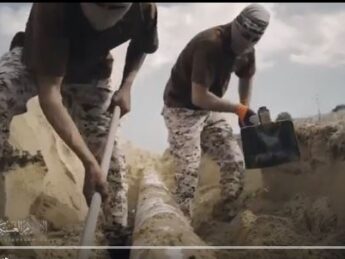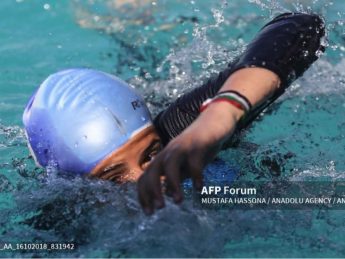Israel Recycles Water, Amira Hass Recycles False Water Charges
 Amira Hass must really like false charges that Israel is stealing Palestinian water, since she keeps on repeating those false charges, requiring us to repeat their refutation.
Amira Hass must really like false charges that Israel is stealing Palestinian water, since she keeps on repeating those false charges, requiring us to repeat their refutation.  Amira Hass must really like false charges that Israel is stealing Palestinian water, since she keeps on repeating those false charges, requiring us to repeat their refutation.
Amira Hass must really like false charges that Israel is stealing Palestinian water, since she keeps on repeating those false charges, requiring us to repeat their refutation.  National Geographic's Parting the Waters, about Israeli and Palestinian use of water really just parts from the truth. To cite just one of many deceptions, it leads readers to believe there are no Palestinian swimming pools – like the one pictured above, in Jenin.
National Geographic's Parting the Waters, about Israeli and Palestinian use of water really just parts from the truth. To cite just one of many deceptions, it leads readers to believe there are no Palestinian swimming pools – like the one pictured above, in Jenin. In recent years press accounts have charged Israel with unfairly and illegally draining water from "Palestinian aquifers," enabling Israelis to enjoy green lawns, clean cars and full swimming pools, while leaving Palestinians with barely enough to drink. The facts say something else.







 As The Los Angeles Times promises truth, accuracy and quality journalism, CAMERA calls on editors to either substantiate or retract the dubious claim that the flow of water into Gaza is facing increasingly severe restrictions.
As The Los Angeles Times promises truth, accuracy and quality journalism, CAMERA calls on editors to either substantiate or retract the dubious claim that the flow of water into Gaza is facing increasingly severe restrictions.  The latest smear against Israel in the British media involves the recurring false accusation that Israel cruelly uses water as a weapon against Palestinian civilians, by denying civilians an adequate supply.
The latest smear against Israel in the British media involves the recurring false accusation that Israel cruelly uses water as a weapon against Palestinian civilians, by denying civilians an adequate supply.